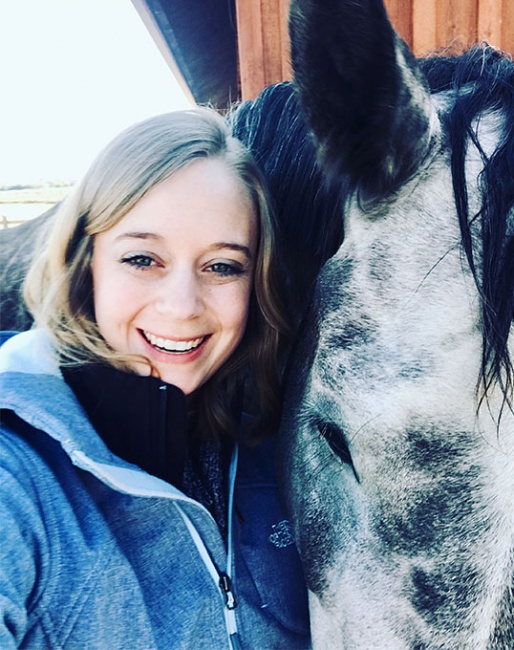
Guest columnist of this week is Morgan Heinrichs (USA), an NAYC gold medalist and USDF silver medalist. She has trained through Grand Prix. Morgan is passionate about helping equestrians navigate problems with their horses and authored the children’s book "Listen As the Horse Speaks."
We Owe it to the Horses to Keep Talking About Welfare
There is an opportunity for improved clarity in the equestrian world regarding what constitutes mistreatment of horses. Seemingly more than ever, there is a divide between what some consider harmful and what others consider kind and appropriate. There is so much negative criticism online lately around the sport of dressage that it is hard to miss.
While the pleas to be nice and support each other are spot on, I think it would be a great disservice to the sport and the horse to completely dismiss the possibility that welfare for the horse could be improved upon. Just as we can likely all agree that perfecting dressage is an impossibility in one lifetime, I hope we can also agree that topics such as welfare are no different. The desire to improve upon equine welfare should always run parallel to our presence in the sport.
What is Abuse?
A lot of the recent online conflict revolves around disagreements about how the word abuse is used. Criticism surrounds both its overuse and underuse. The industry itself lacks a clear definition of the word, so it is not a surprise that we don’t all agree. The lack of clarity surrounding the word is proving detrimental to our sport. Harmless things can be over-criticized, and the grey area of what constitutes abuse is one reason it persists. The lack of a clear definition leaves the door open to interpretation for both extremes.
How do we create guidelines for ourselves of what constitutes kind treatment of the horse so we have the confidence to step away from situations we disagree with? What guidelines do we follow to referee our own actions? How can we advocate for the change we want to see and not tear people down and make enemies along the way?
Call for Definition
We could benefit from a clear and comprehensive definition of the word abuse for two reasons. One so that we can avoid using the term in ways in which it begins to lose its meaning, and two so we can feel empowered to speak up against abuse if we encounter it. The governing bodies of the sport could help provide more thorough guidelines. The FEI states that “abuse” will not be tolerated. However, many forms of abuse are omitted from their rules and many lack specificity. For example, what defines excessive use of an aid, spur, or whip? According to USEF, “Excessive can be defined as more than is fair, reasonable and appropriate under usual, normal and ordinary circumstances.” In my opinion, this does not provide clear direction and is nearly impossible to enforce without controversy.
Lately, hyperflexion has again become the topic for many concerned about where the sport of dressage is heading. Many argue that claims of hyperflexion are just looking for something to criticize as the horses in question are merely behind the vertical, which is a normal part of riding where we cannot achieve perfection. The FEI defines hyperflexion as a neck position achieved through aggressive force. It would seem this is another area that would benefit from more thorough rules and guidelines. How can the topic be argued or even judged correctly if there is so much room for interpretation?
What Constitutes Mistreatment?
We could greatly benefit from the governing organizations more clearly defining what constitutes the mistreatment of horses. The rules need to continue to evolve as the science of equine welfare evolves, and they need to be enforced.
Most importantly, we need to be able to have civilized conversations about welfare that go deeper than you’re wrong and I’m right. We can’t learn from each other with that approach. There is great value to be found in learning from each other’s perspectives. We owe it to the horses to keep the conversation going.
-- by Morgan Heinrichs